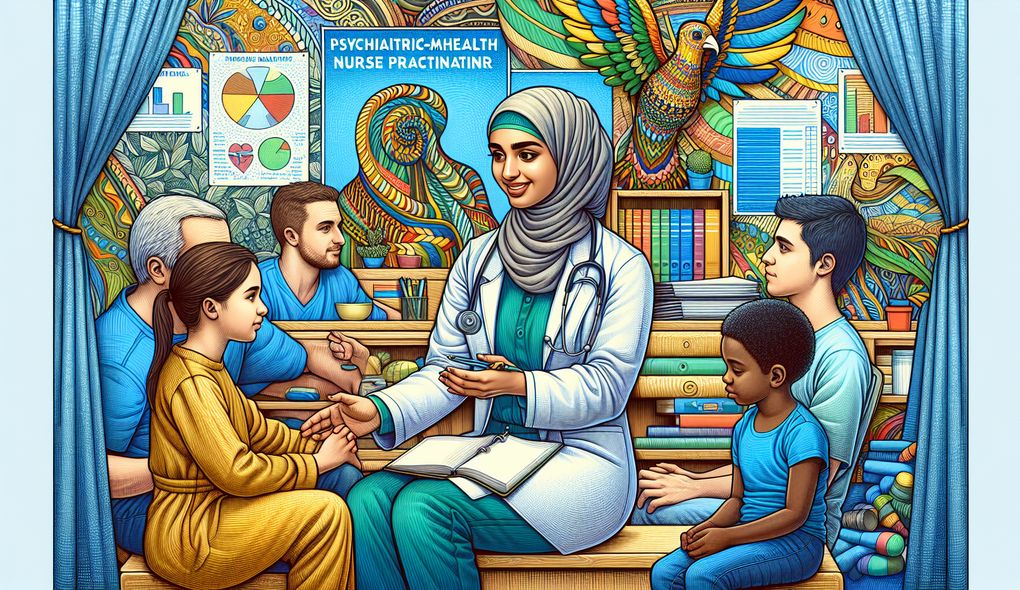How would you approach a comprehensive patient assessment to identify mental health conditions and substance use disorders?
JUNIOR LEVEL

Sample answer to the question:
To approach a comprehensive patient assessment to identify mental health conditions and substance use disorders, I would start by establishing a rapport with the patient, creating a comfortable and non-judgmental environment. I would then conduct a thorough interview, asking questions about their medical history, current symptoms, and any past experiences with mental health or substance use. Additionally, I would use validated assessment tools to gather more objective data. Finally, I would collaborate with other healthcare professionals and review the patient's medical records to gain a holistic understanding of their health and develop an individualized care plan.
Here is a more solid answer:
To approach a comprehensive patient assessment, I would first prioritize building a therapeutic relationship with the patient. This involves active listening, empathy, and creating a safe space for open communication. I would conduct a thorough psychiatric assessment, including a detailed history of the patient's mental health and substance use, as well as any relevant medical history. Utilizing validated assessment tools, such as the DSM-5 criteria, I would gather more objective data to support my findings. Collaboration with other healthcare professionals, such as therapists and social workers, would be essential for a multidisciplinary approach to care. Additionally, I would review the patient's medical records and consult with their primary care physician to gain a comprehensive understanding of their overall health. Based on the assessment findings, I would develop an individualized care plan tailored to the patient's specific needs, incorporating evidence-based interventions, such as psychotherapy, psychopharmacology, and crisis intervention if necessary. Throughout the process, I would ensure strict adherence to ethical guidelines and maintain patient confidentiality. Finally, I would document all assessments and interventions accurately and securely in the electronic health records system to facilitate continuity of care and communication with the healthcare team.
Why is this a more solid answer?
The solid answer covers all the key areas outlined in the job description and evaluation criteria in a more comprehensive and detailed manner. It includes specific steps for building a therapeutic relationship, conducting a thorough assessment, utilizing assessment tools, collaborating with other professionals, developing individualized care plans, and maintaining ethical practice. However, it can still be improved by providing more specific examples of assessment tools and interventions used, as well as highlighting the importance of ongoing professional development.
An example of a exceptional answer:
Taking a comprehensive approach to patient assessment for mental health conditions and substance use disorders requires a combination of clinical expertise, empathy, and a multidisciplinary approach. I would begin by establishing trust and rapport with the patient, ensuring their comfort and fostering an environment where they feel safe to share their experiences. Through active listening and compassionate communication, I would conduct a thorough assessment, delving into the patient's past and present mental health, substance use, and medical history. To gather objective data, I would utilize validated assessment tools such as the PHQ-9, GAD-7, and AUDIT. Collaborating with a team of professionals, including physicians, therapists, and social workers, would enable a holistic approach to care, considering the biopsychosocial aspects of the patient's condition. In addition to psychotherapy and psychopharmacology, I would incorporate evidence-based interventions such as cognitive-behavioral therapy and motivational interviewing to address underlying issues and promote positive change. Recognizing the importance of ongoing professional development, I would stay updated on the latest research, attend relevant workshops and conferences, and engage in reflective practice. By maintaining strict confidentiality and abiding by ethical guidelines, I would ensure the privacy and dignity of each patient. Lastly, the use of electronic health records (EHR) systems would facilitate the seamless coordination of care and the exchange of essential information between healthcare providers. By consistently prioritizing the well-being of the patients and implementing a comprehensive and integrated approach, I would strive to provide exceptional mental health and substance use disorder assessment and care.
Why is this an exceptional answer?
The exceptional answer provides a comprehensive and detailed approach to patient assessment for mental health conditions and substance use disorders. It demonstrates an in-depth understanding of the evaluation areas and incorporates specific examples of assessment tools (PHQ-9, GAD-7, AUDIT) and evidence-based interventions (cognitive-behavioral therapy, motivational interviewing). Additionally, it highlights the importance of ongoing professional development and the use of electronic health records (EHR) systems. The answer goes above and beyond in terms of providing a patient-centered and multidisciplinary approach to care. However, it can be further improved by including specific examples of crisis intervention and conflict resolution skills.
How to prepare for this question:
- Familiarize yourself with various validated assessment tools commonly used in mental health and substance use disorder assessments, such as the PHQ-9, GAD-7, and AUDIT.
- Stay updated on the latest research and evidence-based interventions in the field of mental health and substance use disorders.
- Practice active listening skills and develop empathy to establish trust and rapport with patients.
- Seek opportunities to collaborate with other healthcare professionals, such as therapists and social workers, to gain a multidisciplinary perspective on patient care.
- Review the ethical guidelines and principles surrounding mental health practice to ensure strict adherence and maintain patient confidentiality.
- Become proficient in using electronic health records (EHR) systems to accurately document patient assessments and interventions.
- Engage in lifelong learning by attending workshops, conferences, and continuing education courses to stay abreast of advancements in psychiatric care.
What are interviewers evaluating with this question?
- Clinical skills in psychiatric assessment and intervention
- Developing and implementing effective care plans
- Communication and interpersonal skills
- Knowledge of psychopharmacology and medication management
- Crisis intervention and conflict resolution skills
- Commitment to ethical practice and maintaining patient confidentiality
- Aptitude for lifelong learning and professional development
- Proficiency with electronic health records (EHR) systems

